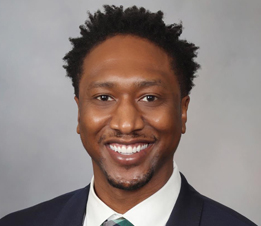Knee Sports Injuries

Knee Sports Injury Specialist
Knee sports injuries may occur while playing indoor or outdoor sports and exercising and can be caused due to inadequate training, improper use of protective devices, accidents or insufficient stretching or warm–up exercises. Knee sports injury specialist, Dr. Kelechi Okoroha provides diagnosis and individualized non–surgical and surgical management for knee sports injuries in Minneapolis. Contact Dr. Okoroha’s team for an appointment today!
Trauma is any injury caused during physical activity, motor vehicle accidents, electric shock, or other activities. Sports trauma or sports injuries refer to injuries caused while playing indoor or outdoor sports and exercising. Sports trauma can result from accidents, inadequate training, improper use of protective devices, or insufficient stretching or warm-up exercises. The most common sports injuries are sprains and strains, fractures, and dislocations.
When a sports-related knee injury is suspected, it is important to schedule an orthopedic consultation for proper examination and care. Dr. Kelechi Okoroha is a knee sports injury specialist who provides detailed examination and care for patients with knee sports injuries in Minneapolis, St. Paul, Rochester, Eden Prairie, Minnetonka, Minnesota and beyond.
Treatment
Anterior cruciate ligament (ACL) is a major stabilizing ligament in the knee which may tear with overuse of the knee while playing sports. The ACL has poor ability to heal and may cause instability. Other common sports injuries in the knee are cartilage damage and meniscal tear. After careful review of your history and examination, Dr. Okoroha will provide an individualized treatment plan to help you return to your normal function.
Knee injuries in sports may require surgical intervention that can be performed using open surgical or minimally invasive technique. Dr. Okoroha will recommend physical therapy to strengthen your muscles, improve elasticity and improve the movements of the bones and joints.
The most common treatment recommended for injury is rest, ice, compression and elevation (RICE).
- Rest: Avoid activities that may cause injury.
- Ice: Ice packs can be applied to the injured area which will help to diminish swelling and pain. Ice should be applied over a towel to the affected area for 15-20 minutes four times a day for several days. Never place ice directly over the skin.
- Compression: Compression of the injured area helps to reduce swelling. Elastic wraps, air casts, and splints can accomplish this.
- Elevation: Elevate the injured part above heart level to reduce swelling and pain.
Prevention
Some of the measures that are to be followed to prevent sports-related injuries include:
- Follow an exercise program to strengthen the muscles.
- Gradually increase your exercise level and avoid overdoing the exercise.
- Ensure that you wear properly-fitted protective gear such as elbow guards, eye gear, facemasks, mouthguards, and pads, comfortable clothes, and athletic shoes before playing any sports activity which will help to reduce the chances of injury.
- Make sure that you follow warm up and cool down exercises before and after sports activity. Exercises will help to stretch the muscles, increase flexibility, and reduce soft tissue injuries.
- Avoid exercising immediately after eating a large meal.
- Maintain a healthy diet which will nourish the muscles.
- Avoid playing when you are injured or tired. Take a break for some time after playing.
- Learn all the rules of the game you are participating in.
- Ensure that you are physically fit to play the sport.
If you have experienced knee sport injuries, please contact Dr. Kelechi Okoroha, orthopedic knee specialist treating patients in Minneapolis, St. Paul, Rochester, Eden Prairie, Minnetonka, Minnesota and beyond.








